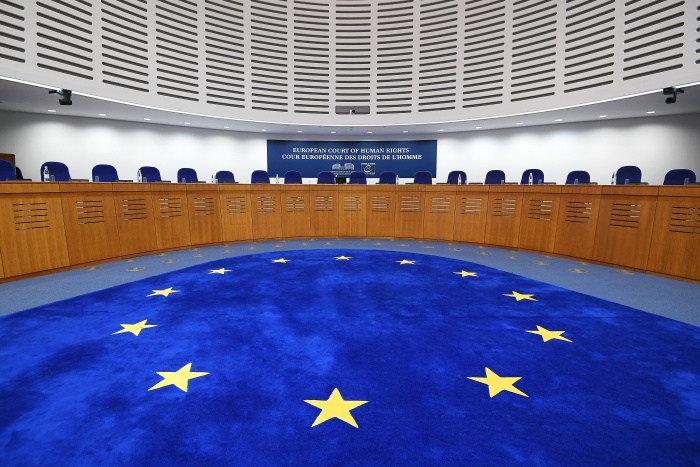The European Court of Human Rights (ECtHR) has decided to refer the case of Şaban Yasak, convicted in Turkey of alleged links to the Gülen movement, to its Grand Chamber after criticism that its previous ruling overlooked fair trial standards and reinforced Turkey’s broad interpretation of anti-terrorism laws.
Grand Chamber Panel’s decisions – December 2024https://t.co/ONCN9Ts0qm#ECHR #CEDH #ECHRpress pic.twitter.com/LUMWVYIPlE
— ECHR CEDH (@ECHR_CEDH) December 16, 2024
At its December 16, 2024 session, a panel of five ECtHR judges accepted a request to review the case of Yasak, a Turkish national convicted for alleged membership in the Gülen movement, which the Turkish government labels a “terrorist organization.”
The decision to refer the case to the Grand Chamber follows widespread criticism of the court’s August 2024 ruling, which found no violation of the European Convention on Human Rights (ECHR) related to Yasak’s detention conditions and conviction.
Yasak’s case has garnered attention for its broader implications regarding Turkey’s crackdown on Gülen movement followers and ongoing concerns about the country’s use of anti-terrorism laws to silence dissent. The Turkish government accuses the movement, inspired by Turkish cleric Fethullah Gülen who passed away in exile in October, of orchestrating the failed coup attempt that took place on July 15, 2016 — an allegation the movement denies. Since then, tens of thousands of individuals have faced prosecution based on alleged links to the group, often with little evidence beyond witness statements or association with Gülen-affiliated institutions.
In Yasak’s case, Turkey’s courts convicted him based on his prior role as a student mentor and coordinator within the Gülen movement. The prosecution relied heavily on witness testimony obtained under “active remorse” provisions, which provide leniency for detainees who implicate others. Human rights organizations have repeatedly criticized the use of this kind of testimony, citing concerns about coercion, torture and reliability.
In its August 2024 decision, the ECtHR ruled unanimously that there had been no violation of Article 3 (prohibition of inhuman or degrading treatment) or Article 7 (no punishment without law). However, rights groups, including the European Association for the Defense of Rights and Freedoms (ASSEDEL), condemned the judgment, arguing it validated Turkey’s expansive and arbitrary application of anti-terrorism laws.
ASSEDEL’s report, published shortly after the judgment, highlighted several concerns. The group argued that the ECtHR failed to distinguish Yasak’s peaceful association with the Gülen movement — primarily focused on education and charity work — from criminal activity. The report also noted procedural shortcomings, including Yasak’s limited access to legal counsel, virtual court participation and the inability to cross-examine witnesses whose testimony shaped the case.
The group further pointed to inconsistencies in witness statements, including claims that Yasak used the ByLock messaging application, despite evidence that the app was inactive at the time. ASSEDEL argued that such flaws undermined the credibility of the testimony and the legitimacy of Yasak’s conviction.
Critics also compared the Yasak ruling to the landmark Yalçınkaya v. Türkiye decision, in which the ECtHR’s Grand Chamber ruled that use of ByLock or participation in peaceful activities alone could not justify terrorism convictions. They contend that the court’s leniency toward Turkey’s reasoning in the Yasak case represents a significant departure from established precedent.
It is very good news that ECHR grants leave to appeal against Yasak judgment. The decision will now be reviewed by the Grand Chamber. We recently wrote a report on this, in which we identified several misinterpretations and omissions. @AntonioStango @MichaelPolakLaw… https://t.co/CQs8asHvkj
— Ali Yıldız (@aliyildizlegal) December 16, 2024
The referral of Yasak’s case to the Grand Chamber has been welcomed by legal experts, rights groups and academics, who view it as a crucial opportunity to clarify the ECtHR’s stance on fair trial standards and freedom of association in politically sensitive cases.
I’m pleased to see that Yasak case’s been granted the opportunity for reevaluation at Grand Chamber level. I hope #ECHR considers the insights from my article below & article by @KeremALTIPARMAK & @RumeysaBudak @StrasbourgObse1 https://t.co/g0hAhTA16U…https://t.co/WcWfyqZcUL https://t.co/NEHL14Z4AX
— Dr. Yasir Gökce (@YasirGokce) December 16, 2024
“The Yasak judgment, as it stands, risks legitimizing Turkey’s criminalization of lawful activities and incentivizing unreliable witness testimony,” ASSEDEL said in its report. “The Grand Chamber must address these systemic issues to ensure consistency with European human rights standards.”
🚨Breaking News: The ECtHR panel of five judges has decided today to refer the Yasak case to the Grand Chamber accepting the applicant’s request!
In its judgment of 27 August 2024, the Court unanimously found that there had been no violation of Article 3 (prohibition of inhuman… https://t.co/kbFubm05aW
— IAHRA Geneva (@iahrageneva) December 17, 2024
The Yasak case also brings renewed focus to systemic overcrowding in Turkish prisons following the 2016 coup attempt and the broader disregard for the Yalçınkaya judgment in Turkey’s judiciary. Despite the Grand Chamber’s ruling in the Yalçınkaya case, Turkish courts, including the Constitutional Court, have reportedly failed to apply its principles, leaving thousands of defendants in similar situations without recourse to justice.
